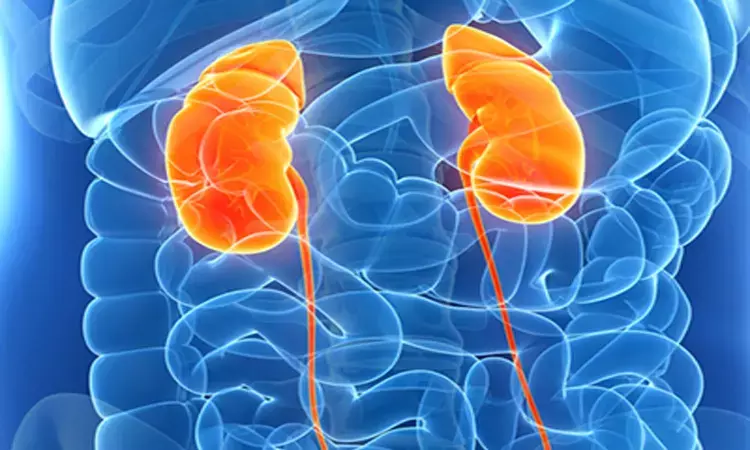- Home
- Medical news & Guidelines
- Anesthesiology
- Cardiology and CTVS
- Critical Care
- Dentistry
- Dermatology
- Diabetes and Endocrinology
- ENT
- Gastroenterology
- Medicine
- Nephrology
- Neurology
- Obstretics-Gynaecology
- Oncology
- Ophthalmology
- Orthopaedics
- Pediatrics-Neonatology
- Psychiatry
- Pulmonology
- Radiology
- Surgery
- Urology
- Laboratory Medicine
- Diet
- Nursing
- Paramedical
- Physiotherapy
- Health news
- Fact Check
- Bone Health Fact Check
- Brain Health Fact Check
- Cancer Related Fact Check
- Child Care Fact Check
- Dental and oral health fact check
- Diabetes and metabolic health fact check
- Diet and Nutrition Fact Check
- Eye and ENT Care Fact Check
- Fitness fact check
- Gut health fact check
- Heart health fact check
- Kidney health fact check
- Medical education fact check
- Men's health fact check
- Respiratory fact check
- Skin and hair care fact check
- Vaccine and Immunization fact check
- Women's health fact check
- AYUSH
- State News
- Andaman and Nicobar Islands
- Andhra Pradesh
- Arunachal Pradesh
- Assam
- Bihar
- Chandigarh
- Chattisgarh
- Dadra and Nagar Haveli
- Daman and Diu
- Delhi
- Goa
- Gujarat
- Haryana
- Himachal Pradesh
- Jammu & Kashmir
- Jharkhand
- Karnataka
- Kerala
- Ladakh
- Lakshadweep
- Madhya Pradesh
- Maharashtra
- Manipur
- Meghalaya
- Mizoram
- Nagaland
- Odisha
- Puducherry
- Punjab
- Rajasthan
- Sikkim
- Tamil Nadu
- Telangana
- Tripura
- Uttar Pradesh
- Uttrakhand
- West Bengal
- Medical Education
- Industry
Many patients with kidney failure regret initiating dialysis

Washington, DC -- Researchers conducted a study to identify factors associated with patients' regret to initiate dialysis.
The results from the study indicate that many patients with kidney failure regret initiating dialysis, and those who choose dialysis to please their doctors or family members may be more likely to experience regret. The findings appear in an upcoming issue of CJASN.
Sometimes patients experience regret when they reflect on a decision they've made about their medical care, and this can negatively affect their quality of life. For patients with kidney failure who cannot receive a transplant and are contemplating dialysis, it's important to have discussions with kidney specialists and other experts who can explain the impacts that dialysis may have on their lives.
Because few studies have examined regret in patients after they've started dialysis as a treatment for kidney failure, a team led by Fahad Saeed, MD (University of Rochester Medical Center) and Paul R. Duberstein, PhD (Rutgers School of Public Health) analyzed survey responses related to regret in patients receiving maintenance dialysis from 7 dialysis units in the Cleveland, Ohio area.
Eighty-two of 397 respondents (21%) reported regret that they decided to initiate dialysis. There were no significant demographic factors linked with regret. Regret was more common when patients reported choosing dialysis to please doctors or family members. Patients who reported discussing life expectancy with their doctors and those who had completed a living will were less likely to report regret that they started dialysis.
"Three strategies to mitigate regret in patients with kidney failure are: the public should be educated about alternatives to dialysis, such as conservative management or active medical management without dialysis; nephrologists should give patients and family members detailed information about life expectancy and quality of life with and without dialysis to help patients and family members decide whether to start dialysis; and patients should talk with their doctors about their life expectancy and complete a living will," said Dr. Saeed.
For more details click on the link: http://dx.doi.org/10.2215/CJN.13781119
Hina Zahid Joined Medical Dialogue in 2017 with a passion to work as a Reporter. She coordinates with various national and international journals and association and covers all the stories related to Medical guidelines, Medical Journals, rare medical surgeries as well as all the updates in the medical field. Email: editorial@medicaldialogues.in. Contact no. 011-43720751
Dr Kamal Kant Kohli-MBBS, DTCD- a chest specialist with more than 30 years of practice and a flair for writing clinical articles, Dr Kamal Kant Kohli joined Medical Dialogues as a Chief Editor of Medical News. Besides writing articles, as an editor, he proofreads and verifies all the medical content published on Medical Dialogues including those coming from journals, studies,medical conferences,guidelines etc. Email: drkohli@medicaldialogues.in. Contact no. 011-43720751


